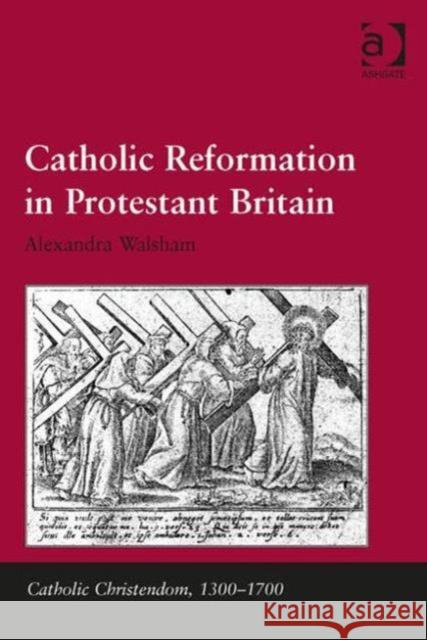Catholic Reformation in Protestant Britain. Alexandra Walsham » książka
Catholic Reformation in Protestant Britain. Alexandra Walsham
ISBN-13: 9780754657231 / Angielski / Twarda / 2014 / 508 str.
The survival and revival of Roman Catholicism in post-Reformation Britain remains the subject of lively debate. This volume examines key aspects of the evolution and experience of the Catholic communities of these Protestant kingdoms during the sixteenth and seventeenth centuries. Rejecting an earlier preoccupation with recusants and martyrs, it highlights the importance of those who exhibited varying degrees of conformity with the ecclesiastical establishment and explores the moral and political dilemmas that confronted the clergy and laity. It reassesses the significance of the Counter Reformation mission as an evangelical enterprise; analyses its communication strategies and its impact on popular piety; and illuminates how Catholic ritual life creatively adapted itself to a climate of repression. Reacting sharply against the insularity of many previous accounts, this book investigates developments in the British Isles in relation to wider international initiatives for the renewal of the Catholic faith in Europe and for its plantation overseas. It emphasises the reciprocal interaction between Catholicism and anti-Catholicism throughout the period and casts fresh light on the nature of interconfessional relations in a pluralistic society. It argues that persecution and suffering paradoxically both constrained and facilitated the resurgence of the Church of Rome. They presented challenges and fostered internal frictions, but they also catalysed the process of religious identity formation and imbued English, Welsh and Scottish Catholicism with peculiar dynamism. Prefaced by an extensive new historiographical overview, this collection brings together a selection of Alexandra Walsham's essays written over the last fifteen years, fully revised and updated to reflect recent research in this flourishing field. Collectively these make a major contribution to our understanding of minority Catholicism and the Counter Reformation in the era after the Council of Trent.











